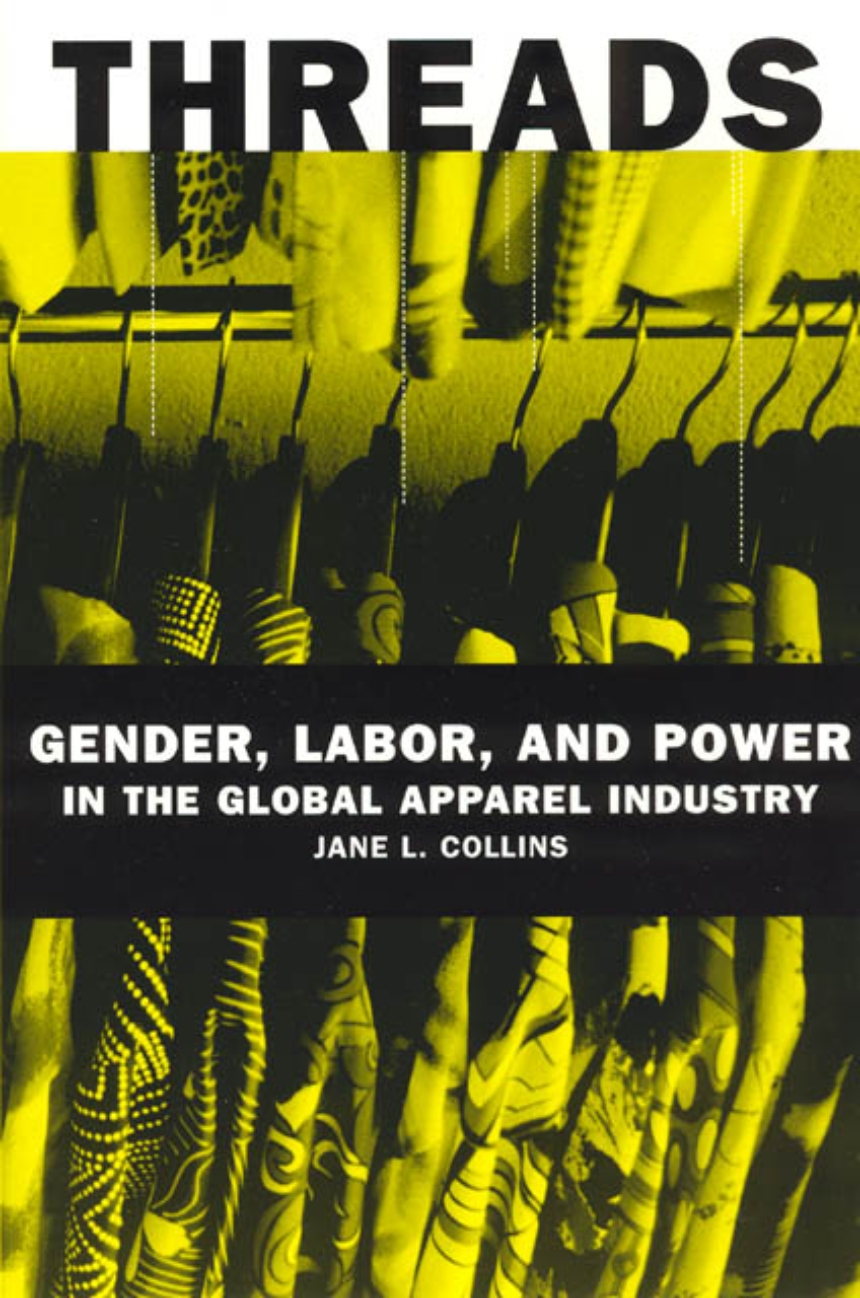Threads
Gender, Labor, and Power in the Global Apparel Industry
Americans have been shocked by media reports of the dismal working conditions in factories that make clothing for U.S. companies. But while well intentioned, many of these reports about child labor and sweatshop practices rely on stereotypes of how Third World factories operate, ignoring the complex economic dynamics driving the global apparel industry.
To dispel these misunderstandings, Jane L. Collins visited two very different apparel firms and their factories in the United States and Mexico. Moving from corporate headquarters to factory floors, her study traces the diverse ties that link First and Third World workers and managers, producers and consumers. Collins examines how the transnational economics of the apparel industry allow firms to relocate or subcontract their work anywhere in the world, making it much harder for garment workers in the United States or any other country to demand fair pay and humane working conditions.
Putting a human face on globalization, Threads shows not only how international trade affects local communities but also how workers can organize in this new environment to more effectively demand better treatment from their distant corporate employers.
To dispel these misunderstandings, Jane L. Collins visited two very different apparel firms and their factories in the United States and Mexico. Moving from corporate headquarters to factory floors, her study traces the diverse ties that link First and Third World workers and managers, producers and consumers. Collins examines how the transnational economics of the apparel industry allow firms to relocate or subcontract their work anywhere in the world, making it much harder for garment workers in the United States or any other country to demand fair pay and humane working conditions.
Putting a human face on globalization, Threads shows not only how international trade affects local communities but also how workers can organize in this new environment to more effectively demand better treatment from their distant corporate employers.
221 pages | 7 halftones, 7 tables | 6 x 9 | © 2003
Anthropology: Cultural and Social Anthropology
Economics and Business: Economics--International and Comparative
Sociology: Urban and Rural Sociology
Women's Studies:
Reviews
Table of Contents
Preface
Acknowledgments
1. Tracing the Threads of a Global Industry
2. The Emergence of a Twenty-first Century Apparel Industry
3. Tultex: Mass-Producing Knitwear in Southern Virginia
4. Liz Claiborne Incorporated: Developing a Global Production Network
5. On the Shop Floor in Aguascalientes
6. Local Labor and Global Capital
7. From Gilded Age to New Deal?
References
Index
Acknowledgments
1. Tracing the Threads of a Global Industry
2. The Emergence of a Twenty-first Century Apparel Industry
3. Tultex: Mass-Producing Knitwear in Southern Virginia
4. Liz Claiborne Incorporated: Developing a Global Production Network
5. On the Shop Floor in Aguascalientes
6. Local Labor and Global Capital
7. From Gilded Age to New Deal?
References
Index
